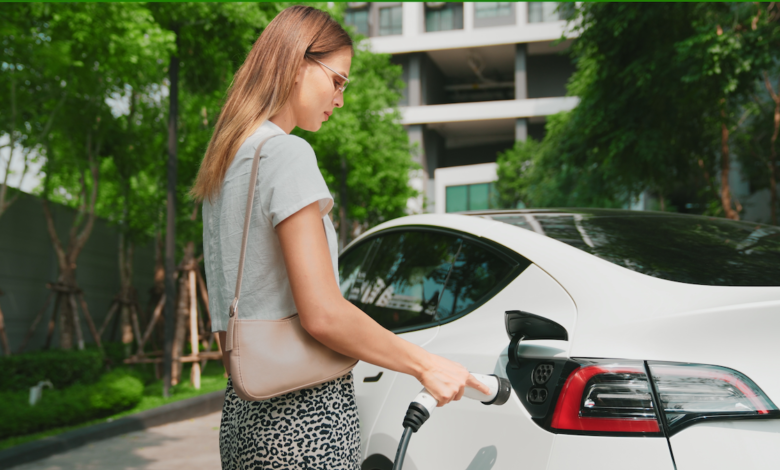How the Hospitality Sector Can Become More Energy-Efficient

Post
Post
Share
Annotate
Save

Adopting Infrastructure to Make the Hospitality Sector More Welcoming on Sustainability
The business world’s increasing attention to sustainability and transition to clean energy are transforming the way organizations and consumers choose their partners, products, and services. More and more are selecting environmentally sustainable establishments that use clean energy and feature efficient technological services.
Tourists and business travelers are increasingly switching to electric vehicles (EVs), and many are selecting their accommodations and restaurants based on whether these establishments offer on-site infrastructure that supports their environmental awareness and goals, as well as their vehicles.
The hospitality sector has a sustainable-infrastructure gap it needs to close. To better serve customers, cut energy costs, and both improve their reputation and increase their revenue, more hotels and restaurants are choosing to install accessible EV charging points; upgrade to energy-efficient lighting and heating, ventilation, and air-conditioning (HVAC) systems; and adopt photovoltaic and solar energy-production systems that help them cut their carbon emissions and increase their energy independence.
Making these changes may seem simpler in theory than in practice. Hospitality businesses may find high energy prices and a complex landscape of energy providers difficult, expensive roadblocks to their sustainability goals.
Businesses trying to navigate this energy marketplace call for external experts to help them develop customized strategies for choosing the optimal technology and infrastructure and attending to administrative needs so they can focus on serving their customers.
Taking Charge with Charging Stations
The optimal choice of EV infrastructure can build long-term loyalty and reputation among its customers as a sustainability pioneer.
By installing or upgrading EV charging stations accessible to both guests and the local community, a hospitality organization can attract partnerships with organizations that manage employee-driven EV fleets while differentiating itself from its competitors as a sustainability leader.
Hotels and restaurants that take a streamlined approach of partnering with one supplier to install its charging infrastructure, provide its management software, deliver electricity, and offer ongoing consulting can become more efficient and cost-effective, consolidating their billing and setting appropriate customer fees.
That efficiency runs both ways. While an organization can continually analyze its customers’ energy usage and adjust accordingly, an energy supplier’s mobile app lets customers monitor charging station availability, a powerful draw for individuals and employees deciding where and how to spend their travel budget.
Energy Efficiency and Power
For any service-oriented business, energy efficiency is smart strategy. The ideal approach entails infrastructure and tools that help manage customers’ and employees’ comfort in an indoor environment while cutting carbon consumption and energy expenses.
Hospitality businesses can boost their on-site energy efficiency in several ways: adopting HVAC systems to minimize consumption, installing LED lighting systems with sensors and dimmers to improve visibility and light dispersion, and using remote management software to monitor and optimize air-conditioning in real time.
These organizations can launch these strategies without initial capital costs by choosing an external energy partner to customize, install, and help manage their infrastructure remotely and to assume any technological or financial risks for this energy service.
Equally important to energy efficiency is the assurance of energy delivery and operational continuity, protecting the business against such risks as voltage surges, harmonics, and interruptions that can damage equipment and reduce productivity.
An energy provider offering remote analytics can identify anomalies in energy consumption, preventing outages as well as making its partner organizations more competitive and reducing their energy use and environmental impact.
Reliability and Sustainability
One key to an organization’s energy efficiency and reliability is the ability to adjust voltage based on its needs. Voltage optimization is a technique for reducing the absorption of active and reactive power and preventing surges of high voltage that can damage equipment.
By installing photovoltaic infrastructure, an organization can become a “prosumer,” consuming only the energy it needs and returning surplus energy to the grid for others to use. Working with an energy partner that designs and installs photovoltaic plants can benefit an organization even beyond the duration of a contract, because the plant becomes the organization’s property, helping it cut carbon emissions now and in the future.
A hospitality business can also differentiate itself by practicing conscious energy consumption, selecting those sources that uphold its sustainability and revenue goals through a partner that offers energy from renewable sources.
Sustainability on Display
Sustainability and innovation are key drivers in the hospitality sector, where differentiation is essential to meet the expectations of an increasingly specific and demanding market. Adopting an energy transition approach is now a strategic imperative, both to attract eco-conscious customers and to offer a service that is increasingly tailored to the needs of guests.
In this sector, sustainability efforts take place both in organizations’ hidden infrastructure and in full view of its business customers and individuals, who may make their spending decisions based on this commitment to environmental mindfulness.
By choosing a one-stop-shop energy partner to provide all the vital infrastructure, technology, resources, and consulting expertise, an organization can build its optimized infrastructure to maximize energy efficiency in plain view of its customers and community—a measure that can also boost revenue and reputation.
Learn more about how Enel’s Set & Charge charging stations can help your organization strengthen its sustainability strategy.



